
We make lots of suggestions in The Well-Trained Mind. We describe methods for classical education, and talk about philosophy and educational theory. But theory isn’t enough; we were anxious to give even the most uncertain parent the confidence to tackle the task of classical education at home, so we included plenty of specific suggestions. This was partly because of the urging of our publisher, who was completely unfamiliar with home schooling. (“But how much time should they spend on math?” he would write on the manuscript. “How many pages of spelling should a third grader do every day? Exactly how many hours should a seventh grader devote to science? If you don’t tell them, they won’t know where to start, and they won’t even try.”)
We were a little skeptical, primarily because we’ve been involved in home education our whole lives. A lot of the things he wanted us to spell out (for example, how many times a week to do art, for how many minutes at a time) seemed to us to be obvious. But as we’ve heard back from parents using the book, we’ve realized that he was right. If you’re a veteran home schooler transitioning to classical education — or in your third year of classical education — you don’t need to know how many minutes to spend in art, how many times per week. But if you’re a beginner, you need concrete details. Having specifics in hand is necessary if you’re going to have the confidence to tackle the home education project.
This is why we also recommend one or two curricula for every subject. Of course there are plenty of books and programs out there that can fulfill the same function as Saxon math, or Delta science. But we didn’t want to overwhelm our readers. We evaluated programs for a combination of thoroughness, systematic method, ease of use, and affordability, and recommended the curricula that won (in our opinion).
So of course you should feel free to substitute books and programs that work best for you and for your family. Naturally, we feel strongly about some of the programs and methods we recommend. For example, after meeting scores of illiterate college freshmen, Susan is only confirmed in her opinion that everyone ought to do systematic grammar well into high school. And we continue to insist that young children (grades 1-4) can and should do more formal academic work than is recommended by some other educators. Jessie has heard from far too many parents who say, “We took a relaxed approach in the early years, and our children have really suffered from it.” If you ask us, we’ll repeat these opinions!
But the beauty of home schooling is its flexibility. After all, you are home schooling because you want the freedom of working with your child’s strengths and weaknesses in a one-on-one setting where you have the option of experimenting and adjusting.
One area that seems to be concerning our readers is that of scheduling. For example, we seem to have fourth graders scheduled for 5+ hours of work per day. This is “quite intensive,” as one mother wrote us. “I think this will be a bit much, and I keep wondering how [you] did it with only a 4-day week, and cover all the material.”
The answer to this question is simple: we didn’t do it all. In the book, we try to cover every possible area of academics: reading, writing, grammar, history, science, art, music, logic, speech and debate, mathematics, research papers, foreign languages, computer skills, typing — you name it, we have suggestions for it.
But that doesn’t mean that one particular child is going to study all of these areas. Your family’s home school schedule will be affected by your own interests and priorities. For example, Susan does an enormous amount of reading and writing at her house, because she’s a professional writer. Art only happens every three weeks (or so), although music practice takes place every day (since she is also an amateur musician). If she were a professional artist, she would do art every day, and music, perhaps, every three weeks or so.
We said in the book (but apparently not emphatically enough!) that very few parents will follow the schedule in the book. Recommended schedules are useful primarily as a springboard for your own schedule — one that fits your family and your child’s learning style.
We received recently an e-mail in which someone had totaled the times recommended in the first edition of the book for study in each grade. The list looked something like this:
| Kindergarten | 1 hour 20 minutes |
| First grade | 3 hours 49 minutes |
| Second grade | 4 hours |
| Third grade | 4 hours 52 minutes |
| Fourth grade | 5 hours 34 minutes |
| Fifth grade | 6 hours 41 minutes |
| Sixth grade | 6 hours 51 minutes |
| Seventh grade | 6 hours 51 minutes |
| Eighth grade | 6 hours 58 minutes |
| Ninth grade | 7 hours 33 minutes |
| Tenth grade | 7 hours 33 minutes |
| Eleventh grade | 6 hours 21 minutes |
| Twelfth grade | 6 hours 21 minutes |
The writer was concerned about overkill academics, especially in the early grades.
But remember these points about the recommended schedules:
You’ll be surprised how much time for academics and outside reading you have once you turn off the TV. Enough said.
Yes, you will spend this amount of time if you do EVERYTHING we suggest in the book. But no family is going to do that! Obviously, a few subjects (reading and writing, mathematics, history and science) must be studied by every educated person. But not even an educated person does the core subjects PLUS two foreign languages, art history, drawing lessons, music lessons, and music appreciation. Rather, do the core subjects and choose what arts and languages you will concentrate on. Or alternate: music one year, art the next. And if you can do them all, more power to you; but don’t feel guilty if you can’t.
These totals assume that children will work at basically the same rate in every subject: half an hour for grammar, forty-five minutes for math, twenty minutes for spelling. Our recommended schedules make the same assumption. But in real life, children find some subjects a breeze and others a hard slog. Most children will not spend twenty minutes on spelling and forty-five minutes on math; they’ll toss off the spelling in five minutes and sweat over the math for fifty-five minutes, or charge through science in half the time we suggest. So you may well find that you can complete the amount of work we suggest in much less than the time we list; this is especially true for children who are quick in language arts skills.
When looking at these totals, consider that a child in school, even in the elementary grades, spends 7-8 hours at school and another 2-3 in homework: that’s 9-12 hours on schoolwork! Obviously, this is far too much. But even at its most ambitious, classical home education doesn’t require this much time.
The high school totals are based on a heavily academic schedule pursued by a college-bound student. It is not unreasonable to expect a fifteen-year-old bound for Harvard or the University of Pennsylvania (and perhaps, ultimately, medical school or law school) to spend 7-8 hours in study. On the other hand, if your fifteen-year-old is spending four hours per day ice skating or practicing her gymnastics, you’re going to have to trim your academic expectations.
When her own children were young (third grade, first grade, and kindergarten), Susan did a four-day week, sticking fairly close to the schedule in the book, and then went to the library and the swimming pool on Day 5. She made sure that the skill work (reading, writing, spelling, grammar, math, foreign language, piano) was ALWAYS completed. History and science alternated; sometimes, if it was a beautiful day or if a crane showed up in the back yard or if cousins dropped by to play, history and science fell off the schedule entirely — for the day.
So don’t be intimidated by the schedules. Decide what subjects you want to concentrate on, and prioritize those. Decide which ones are less important, and give them less time. Or skip them altogether.
Remember these points as you make up your family’s schedules:
For elementary grades, prioritize the skill areas above all else. Make sure that children are consistently doing their work in reading, writing, grammar, spelling, and mathematics. If you’ve chosen to do a foreign language or music lessons, these are also skills which should be studied every day — even if it’s only for a short time. Be careful not to involve young children in too many outside activities! It is vital that the early years be spent laying a foundation of those skills which will make academic work MUCH easier later on! History and science should be alternated; don’t try to do both every day!
Middle grade students will begin to have out-of-the home commitments: athletics, clubs, social events. It’s time to start making tough choices! If you’re going to do swim team, accept that you’re not also going to learn Latin AND Spanish. If you’re in a drama club that meets two nights per week, you probably won’t have time for music lessons AND art lessons AND gymnastics. Now is the time to set a healthy life pattern: don’t encourage children to keep adding activites without also subtracting something that they’re already doing.
High school students have even MORE outside commitments. But by this age, children begin to specialize — and that means that some subjects can drop out of the curriculum. If you’re not going to be a math or sciences specialist, there’s no need to complete math courses after pre-calculus, and you probably don’t need to study high school physics. If you’re going to be a computer scientist, accept that you might not read all the Great Books on the list, or master art history and music appreciation. (But everyone needs to be able to read with ease and write with elegance, no matter what his interests.)
For all students — but particularly for older students — continually think about long range goals and plans. What are you attempting to do? Go to an Ivy League school, be an artist or writer, enter an apprenticeship? These are all good, worthy goals, but students pursuing them will have very different schedules.
Schedules are servants, not masters. Make a schedule, but don’t panic if you don’t stick to it every day. On the other hand, chaos always results when there is no plan for the day, the week, the month, and the year. And chaos always masters us; we become slaves to whatever needs to be completed immediately, and are unable to focus on what must be accomplished in the long run.
Recommended Products
-

Juneteenth Booklist & Activities
0 out of 5$0.00 Add to cart -
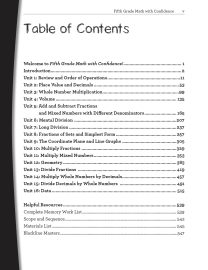
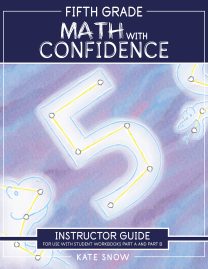
Fifth Grade Math with Confidence Instructor Guide
0 out of 5Starting at:$36.95Original price was: $36.95.$27.71Current price is: $27.71. Select options -
Sale!

Hansel & Gretel and Other Stories: Downloadable MP3
0 out of 5$12.95Original price was: $12.95.$8.42Current price is: $8.42. Add to cart -
Sale!

Dorothy and the Wizard in Oz: Downloadable MP3
0 out of 5$25.95Original price was: $25.95.$16.87Current price is: $16.87. Add to cart -
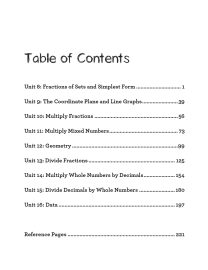 Sale!
Sale!
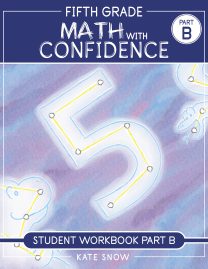
Fifth Grade Math with Confidence Student Workbook B
0 out of 5$16.46 – $21.56 Select options This product has multiple variants. The options may be chosen on the product page -
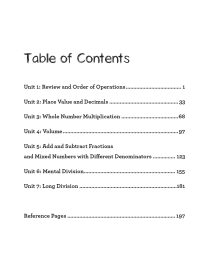 Sale!
Sale!
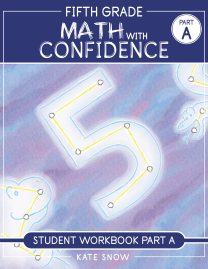
Fifth Grade Math with Confidence Student Workbook A
0 out of 5$16.46 – $21.56 Select options This product has multiple variants. The options may be chosen on the product page
ABOUT THE AUTHOR
Susan Wise Bauer
Join over 100,000 homeschooling families
For the latest offers, educational insights, products and more.
By joining you agree to our privacy policy.












